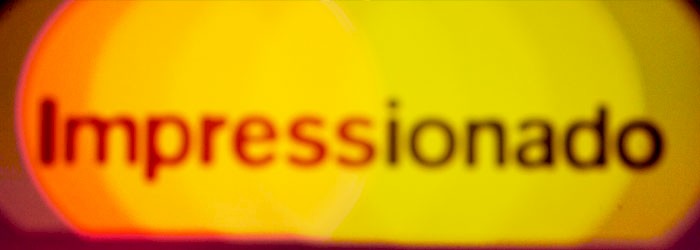
Impressionado 2011
North Rhine-Westphalian musicians will be working with Portuguese jazz musicians on the Spring 2011 project.

A programme consisting entirely of interpretations of Claude Débussy’s Piano Preludes is being written for the classic hard bop jazz line-up with three brass players and a rhythm section. In his works, the French impressionist found ways of creating harmonically structured music that may be compared in many respects with the tradition of modern jazz or has specifically influenced it.
Débussy deliberately rejected the Romantic tradition, and his harmonics are no longer ruled by the laws of tension and release, but rather demonstrate a treatment of sounds that very closely resembles the ideal of modal jazz. In both we see a preference for fourths and pentatonics, and the whole tone scale is frequently used.
His search for tonal elements removed from the classical Romantic tradition led Débussy to explore pre-Classical music, leading automatically to the use of church modes. He was also fascinated by non-European music, in particular the Balinese/Javanese gamelan orchestra and Arab music. All of these encounters may be discovered in strikingly similar form in John Coltrane’s milieu. It is almost impossible to determine whether Débussy specifically served as a systematised role model or whether similar conclusions were drawn when studying the same kinds of music.
Débussy himself had no difficulty whatsoever in approaching popular and salon music, as evidenced by pieces such as “Children’s Corner” or “Golliwogg’s Cakewalk”. One may safely say that he opposed rigid systems on principle and, in searching for new sounds, knew neither geographical nor ideological boundaries. This ideal alone links him directly with a type of music that was just beginning to germinate at the beginning of the 20th century but did not yet know its name: jazz.
